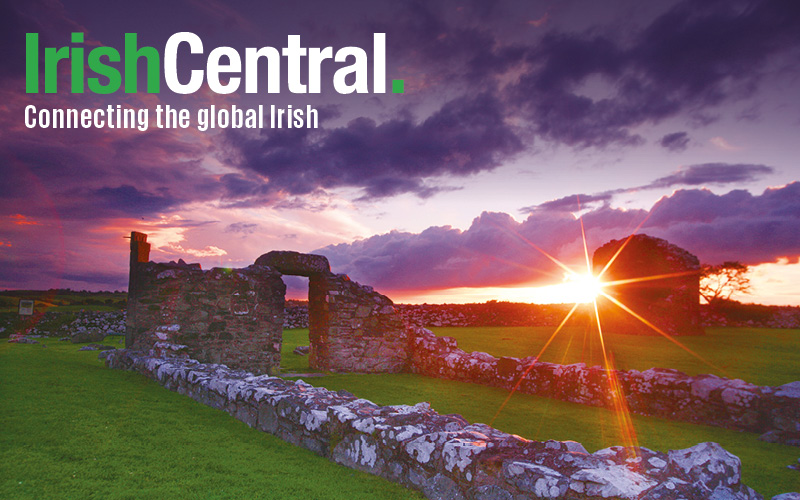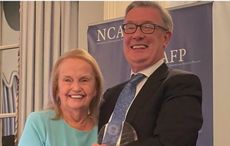In 2005, I met someone who changed my life.
Following the sale of easycash, an instore cash ATM business in Ireland to Royal Bank of Scotland in 2004, I decided to take my family to Dubai to celebrate. One morning, I went in search of a coffee, and I got chatting to an Indian waiter in our hotel. He told me that he was working in Dubai to support his wife back home in India by sending remittances every month. When he wanted to get a few Dirhams to her immediately (in between his monthly money transfers) he would buy a prepaid Indian mobile top-up card from a local store in Dubai, text the PIN code to his wife who would then manually add minutes to her mobile phone in India.
The more I thought about what the waiter had just described, the more I realized that he was actually disrupting one of the world’s oldest and largest industries: migrant remittances. Later that afternoon, I returned to the café to find him and asked if he would take me to the store where he had bought the Indian mobile top-up card.
That evening, he took me to a dimly lit store in Sonapur, one of Dubai’s many labor camps for migrant workers, where the store owner not only showed me prepaid top-up cards for the Indian mobile operators, but also top-up cards for every other Asian mobile operator. I knew then that the need to share small values instantly was not the random behavior on the part of just one country’s diaspora. Instead, it was part of a widespread global desire to stay connected with families separated by the necessity to work abroad. I thought about ways to automate this clunky, manual, and expensive service and how I could make it easy to use, really cost effective and relevant to every emerging market country.
Thrilled to welcome 6th class students from Our Lady of Wayside to @dinghq to present their @CoderDojo certficates pic.twitter.com/4pfWI85YPU
— Mark Roden (@MRding) June 17, 2016
Ding’s founding mission was simple – to build a service to enable any worker abroad to transfer minutes instantly to mobiles back home. That was 2006, and to achieve this, we needed to buy airtime from every emerging market mobile operator, which meant negotiating contracts and connections with all of them. We also needed to build the technology to instantly and automatically allow the transfer of top-up from one country to a mobile phone in another country. We then needed to find stores in foreign countries to sell the Ding service and also to make it available on the web (no apps back in 2006!).
What I didn’t realize then was that we were creating a new market sector. As a result, a major problem surfaced early on – the mobile operators did not believe in this opportunity as being of sufficient scale to devote time and effort to validate it. They needed to be convinced – as did all of the store owners in foreign cities where the worker populations lived.
Like all startups, we embarked on this road with plenty of ignorance around pitfalls and obstacles but also with a lot of determination to ‘make it happen’. Along our journey, we navigated many hazards, but we made it through and have continued to scale. In the very early days, I was fortunate in that I had capital to invest in Ding from the sale of my previous business and I used almost all of it to get through five loss-making years and into profitability. Today we are connected to over 350 mobile operators that support 4 billion mobile phones in every emerging market country, and we transfer millions of minutes each day from workers abroad to family mobiles back home.
A very happy customer in Kathmandu just received 309NPR to his mobile in Nepal from http://t.co/UqC6VOiVq9 pic.twitter.com/I3ZCf85Y4G
— Mark Roden (@MRding) May 21, 2014
For us, of course, success is revenue and margins, but also how big an impact we are having on people’s lives. How many of the four billion mobile phones that we are connected to are we delivering with life-changing access to data and communication? In our view, it’s not nearly enough, not even close to the kind of impact that we should be having.
So, what did we get right and if we were to do it again what would we do differently?
First, what we did right…
- We concentrated on dominating our space rather than spreading ourselves across multiple product opportunities.
- We avoided taking venture capital in the early days. If you can avoid it too, then don’t take it. It gives you more control over the direction of the business.
- We established an ambitious and competitive sales culture early on. Many startups simply fail because they don’t have enough revenues and margin. If you generate revenues and get big, you can write your own history.
- We kept the costs down in the early days! No matter what else, the senior team’s attention to ensuring revenues always exceed costs as you scale is often a key to achieving long-term success.
What we would do differently…
Put the product first and bring the customer to your head office. Too many times across all of our channels our service is not as close to the customer as we would wish.
As a CEO, build a plan and communicate it widely and frequently. It doesn’t have to be an ‘amazing vision’ but it needs to be something that gives direction and helps everyone answer questions regarding the things ‘we do’ and more importantly those ‘we do not’.
Once a company starts to get a bit of momentum, find someone outside your organization who can help shine more light on your journey. An advisor or mentor can give a fresh perspective and an unbiased view on the direction of the business. I got to this later on, but I would have benefitted from doing this earlier.
Our vision is to change four billion people’s lives with access to data and communication, and we have built a platform to achieve that. Everything has to be about realizing that goal.
---
This article appears courtesy of The Dublin Globe. Visit their website for more insights into Dublin's startup ecosystem.




Comments